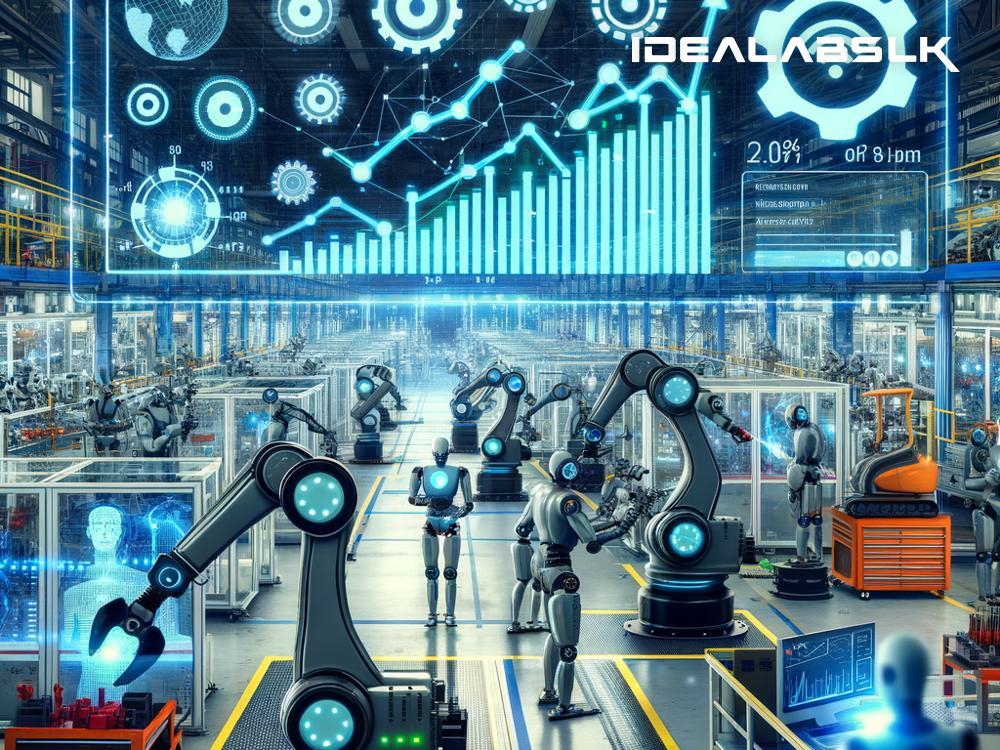The Role of AI in Predictive Maintenance for Manufacturing
In today's fast-paced world, keeping manufacturing equipment running smoothly is more important than ever. Downtime, or time when machines are not working, is costly. Not just in terms of money lost because things are not being produced, but also in the potential damage to a company's reputation when it can't meet demand. Here's where Artificial Intelligence (AI) comes into the picture, particularly in an approach called predictive maintenance. Let's break down what predictive maintenance is and how AI is revolutionizing this field in simple English.
What is Predictive Maintenance?
Imagine driving a car that could tell you it's about to have a flat tire before it actually happened. You could avoid the hassle of being stranded on the side of the road. That's the idea behind predictive maintenance. It’s about predicting problems before they occur in manufacturing equipment and fixing them in advance. This approach helps in saving time, money, and preventing bigger issues down the line.
Enter AI: A Game Changer
Artificial Intelligence, or AI, is technology that allows machines to learn from experience, adjust to new inputs, and perform human-like tasks. In the context of predictive maintenance, AI analyzes data from machines to predict failures before they happen. This might sound like magic, but it's all based on data and patterns.
How Does AI Work in Predictive Maintenance?
-
Data Collection: AI systems collect data from various sensors placed on machines. This data can include temperature, vibration, sound, and more, depending on what the machine does.
-
Learning from Data: The AI uses this data to learn how the machine operates under normal conditions. It's like how you learn the quirks of your car or bike after using it for a while.
-
Detecting Patterns: Over time, the AI system starts to recognize patterns. It can distinguish between normal operational noise and something that sounds like trouble.
-
Predicting Issues: Once it knows what trouble sounds like, the AI can predict when a part of the machine is likely to fail. This prediction is based on real data and patterns it has learned over time.
-
Alerting Humans: Finally, the AI system alerts humans about potential problems. This gives people a chance to fix issues before they become serious.
Benefits of AI in Predictive Maintenance
-
Fewer Surprises: Just like our example of a car warning you about a flat tire, AI in predictive maintenance helps manufacturers avoid being caught off guard by machine failures.
-
Saving Money: By catching problems early, companies can avoid costly emergency fixes. Routine maintenance is almost always cheaper than a major repair or replacement.
-
Better Planning: Knowing in advance when a machine might need maintenance allows for better planning. This way, maintenance can be scheduled during off hours, minimizing downtime.
-
Longer Equipment Life: Regularly maintaining equipment before major breakdowns occur can extend the lifespan of machinery, giving companies more value from their investments.
-
Safety: Predicting failures before they happen can also prevent accidents in the workplace, keeping everyone safer.
The Future of AI in Predictive Maintenance
As technology evolves, the role of AI in predictive maintenance will only grow. We might see AI systems that are even better at predicting when machines will fail, possibly even before current sensors can detect an issue. Furthermore, as more companies adopt these AI systems, the cost of implementing predictive maintenance will decrease, making it accessible to even small manufacturers.
Conclusion
The role of AI in predictive maintenance is transforming how manufacturing operates. By predicting issues before they happen, AI helps save money, reduce downtime, and maintain a safe working environment. As this technology advances, its impact on predictive maintenance will only become more significant, ensuring that manufacturing continues to become more efficient and reliable. In a world where staying ahead of the curve is indispensable, AI in predictive maintenance is not just helpful; it's essential.
By embracing this change, companies can look forward to a future where machine failures are rare, maintenance is a breeze, and productivity is the norm, not the exception. Welcome to the future of manufacturing, powered by AI.

